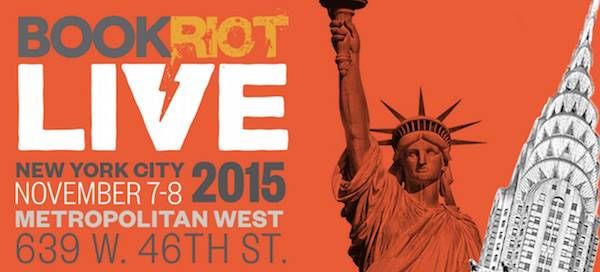
Do You Dread the DNF?
This is a guest post from Angel Cruz. Angel is a 20-something professional enthusiast living and writing in Toronto. She has been blogging about books since May 2011–her favourite genres are magic realism, contemporary fiction, and historical fiction.
You can also find her at Women Write About Comics, reviewing front/backlist books and manga, as well as critically examining Asian representation in both Western and Asian media. Her copy of The Portable Dorothy Parker is paged through more often than is probably healthy. Ice cream, Broadway musicals, and Arashi are her lifeblood. Follow her on Twitter @mermaidvisions.
____________________
It’s nothing to be ashamed of.
Everyone does it at least once in their lifetime.
In five years, I’ve done it 13 times, and I fully expect I’ll do it again before 2015 is over.
Yes, fellow readers, sometimes I DNF (do-not-finish) books, and it’s been one of the best decisions I’ve ever made as a reader.
DNF-ing books can sometimes be a divisive topic in the book community, and understandably so. How can you know you don’t like a book if you don’t read it cover-to-cover? Is it fair to dismiss a story without getting to the end? It’s very possible to argue for either side, and both can be equally valid.
The decision to DNF a book is rarely a knee-jerk reaction. Most, if not all, of my fellow readers talk of trying to give all books a fair shot. A lot of people (including me) have read past points in books that have made us uncomfortable or bored us to get to the end, hoping that it’ll be worth the journey. I know I experience more than a little bit of guilt when I choose to walk away from a book. Maybe I’m just not getting it, maybe I’m missing something. Maybe I’ve made a huge mistake.
But if there’s anything the last few years of book blogging has taught me, it’s that sometimes it’s good to recognize when books just aren’t working for you. Not every single person is going to love every single book. We’re not even going to like every book in the small subset of books we each encounter in our lifetime.
DNF-ing one book means you have more time to pick up another story, one that might be exactly what you’re looking for, with characters that light up your imagination. Closing one cover might lead to a realization about the kinds of themes you gravitate towards, and the type of plot twists that distance you from a story. Allowing myself to DNF books has not only made my reading load lighter, but also more fun. I don’t feel pressured to keep up with hype, and I can always find another book to enjoy.
These days, my biggest reason for DNF-ing a book is racism and sexism in the text. Sometimes it’s gratuitous violence that I don’t feel adds anything to the story. Sometimes it’s the subject matter. And sometimes it’s just a lack of emotional connection to the characters or the plot.
I’ve been surprised by some of the books that I’ve marked as a DNF just as many times as I have known it was coming while reading a story. As one of the millions of kids who grew up loving the Harry Potter series, I fully expected to love whatever J.K. Rowling came out with next, regardless of subject matter or style. But The Casual Vacancy and I just did not mesh very well. I couldn’t get past page 50, and I just felt relieved once I decided I wouldn’t force myself to finish. It doesn’t make the book any less good for other readers, nor does it mean I’m bad at reading. It just shows how subjective reading and reading experiences can be, and how no matter what, there’s a story out there for everyone.
____________________
Book Riot Live is coming! Join us for a two-day event full of books, authors, and an all around good time. It’s the convention for book lovers that we’ve always wanted to attend. So we are doing it ourselves.


















